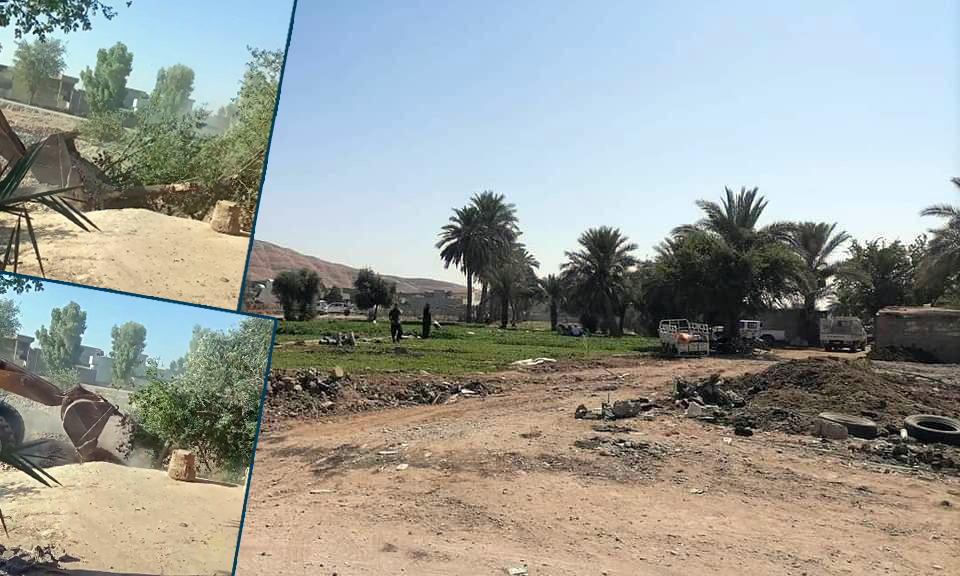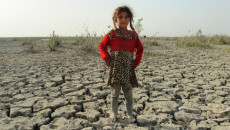Dozens of old palm and olive trees in Tuz Kkhurmatu have been uprooted, while the district municipality has threatened to punish them.
The trees, some of which are more than 70 years old, cover an area of about seven kilometers and are located at the end of the neighborhood of Rizgari in Tuz Kkhurmatu district of Salahaddin province.
Aram Qadir, a farmer in Tuz Kkhurmatu, has been working on the farm for more than 14 years, said some people after death of the owner who signed contract for us, “have uprooted tens of trees by bulldozer.”
Qadir and two other farmers have previously grown dates and olives on the land. “The man who previously introduced himself as the owner of the land and had a contract with us died and someone close to him took over the land and destroyed the whole orchard.”
“He said he would divide the land into several pieces and sell it for residential purposes,” Qadir added.
According to the Agricultural Land Protection Law No. 3 of 2008, agricultural land cannot be converted into residential areas by the decision of their owners, unless the state decides itself.
Mar’i Rashid Bayati, director of the Tuz Kkhurmatu municipality, told KirkukNow that the trees in the agricultural land were dug with shovels.
"The claims of these people are not true, because we came to know the land is municipal property and agricultural," he said.
The multi-ethnic district of Tuz Khurmatu home to 125,000 Turkmens, Kurds and Arabs, located 70 kilometers south of Kirkuk and part of Salahaddin province, is the only disputed town of the province and one of the disputed territories between Erbil and Baghdad.
The predominantly Sunni-Muslim Arab province of Salahaddin, about 135 kilometers north of the Iraqi capital, once home for Saddam Hussein, is under the control of Iraq's Shia-led paramilitary the Popular Mobilization Forces PMF, known as al-Hashid al-Shabi.
We have sued them for cutting down the trees and digging it up, so that they can be punished according to the law
KirkukNow could not get comments from those accused of uprooting trees of the farmland.
According to the Forestry Law No. 30 of 2009, cutting down and digging trees is not allowed unless there is an authorized technical justification, which the law specifies in several points, otherwise the violator will be fined.
Articles 479 and 480 of the Iraqi Penal Code also provide for up to two years in prison and a fine or one for those who cut down or uproot trees.
“Each tree had about 150 kilograms of dates, more than 87 palm trees, some over 70 years old, ... but most of them have now been excavated.”
Qadir and three other families, have lost their livelihood due to the confiscation and destruction of the agricultural land.
The destruction of the farm and the felling of trees coincides with a UN warning that Iraq, which is the fifth most affected country in the world by climate change, needs several measures, including bosting agriculture and greenery, to combat desertification and deforestation.
"In the future, we will turn these lands into amusement parks for citizens. We will not allow anyone to encroach on them," said director of the Tuz Kkhurmatu municipality, without giving further details about the risk of converting the land from agricultural to residential.






